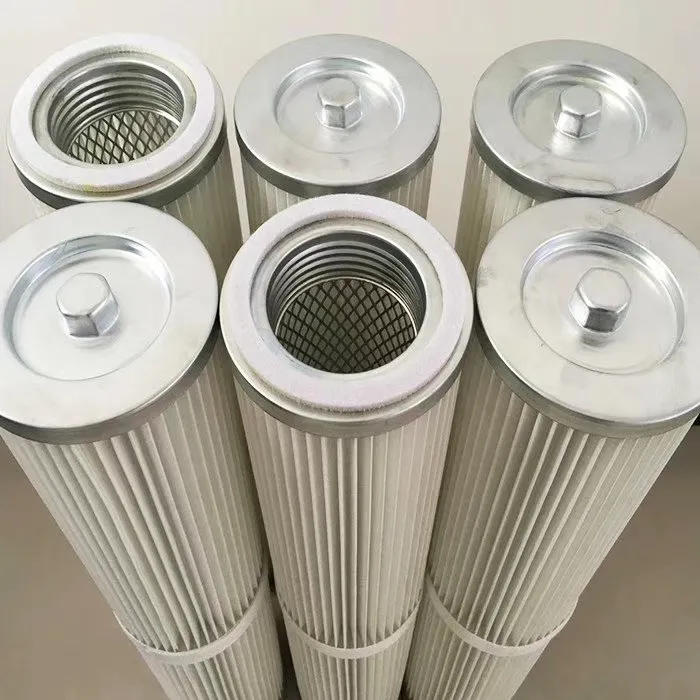 Tel:
+8615930870079
Tel:
+8615930870079
Νοέ . 13, 2024 01:06 Back to list
metal filter element
The Role of Metal Filter Elements in Modern Filtration Systems
In industrial processes, maintaining cleanliness and preventing contamination are vital for operational efficiency and product quality. Metal filter elements have emerged as a crucial component in filtration systems across several industries, thanks to their robust performance and longevity. This article explores the significance, benefits, and applications of metal filter elements in modern filtration solutions.
Understanding Metal Filter Elements
Metal filter elements are engineered filters made from various metal materials, such as stainless steel, aluminum, or bronze, designed to remove impurities from fluids or gases. These elements can be constructed in different forms, including woven meshes, sintered filters, or porous metal structures, each tailored for specific filtration requirements. The use of metal as a primary material offers significant advantages over traditional fabric or paper filters in terms of durability and resistance to harsh environments.
Key Benefits of Metal Filter Elements
1. Durability and Longevity Metal filters are designed to withstand extreme temperatures and pressures, making them ideal for high-demand applications. Unlike their paper or cloth counterparts, which may degrade or tear, metal filters can endure prolonged use and require less frequent replacement.
2. Chemical Resistance Metal filter elements can resist many corrosive substances, allowing them to function effectively in chemically aggressive environments. This property is particularly beneficial in the petrochemical, pharmaceutical, and food processing industries, where exposure to harsh chemicals is common.
3. High Filtration Efficiency Metal filters are capable of removing particles as small as a few microns, ensuring high levels of cleanliness. Their structural integrity means they can maintain higher flow rates while offering superior filtration performance compared to traditional filters.
4. Easy Maintenance and Cleaning Many metal filter elements can be easily cleaned and reused, enhancing their cost-effectiveness. Systems utilizing backwashing or other cleaning methods can maintain performance without the need for frequent filter changes, reducing waste and operational costs.
metal filter element

5. Customizability Metal filters can be fabricated into various shapes and sizes to meet specific application requirements. This flexibility allows engineers to design filtration systems that fit snugly into different configurations, ensuring optimal performance.
Applications of Metal Filter Elements
Metal filter elements are widely utilized across various sectors
- Oil and Gas Industry Filters are crucial for separating particulates from crude oil and natural gas. Metal filters can withstand the demanding conditions within this industry and ensure the purity of processed materials.
- Pharmaceutical Manufacturing In pharmaceutical production, maintaining sterility is paramount. Metal filters play a crucial role in ensuring that any contaminants are removed from gases and liquids used in manufacturing processes.
- Water Treatment Advanced water purification systems often employ metal filters to ensure clean drinking water. Their resistance to rust and corrosion ensures that these filters can operate effectively in various water treatment conditions.
- Food and Beverage Processing Metal filters are also common in food processing, where they help to ensure that products are free from harmful contaminants. Their ability to resist high temperatures and cleaning agents is particularly advantageous in this application.
Conclusion
Metal filter elements are an indispensable part of modern filtration systems, offering numerous benefits ranging from durability to high filtration efficiency. Their ability to maintain performance under severe conditions makes them a preferred choice in industries such as oil and gas, pharmaceuticals, and food processing. As industries continue to demand higher standards of purity and operational efficiency, the role of metal filter elements will only grow, driving innovation and ensuring cleaner processes across the board.
-
Types and Applications of Air Filtration CartridgesNewsJul.28,2025
-
The Role of Gas Turbine FiltersNewsJul.28,2025
-
Mastering Air Filter Cartridge UseNewsJul.28,2025
-
Advanced Turbine Filters for Modern Gas TurbinesNewsJul.28,2025
-
Cellulose Air Filter Cartridge Advantages in Dust FiltrationNewsJul.28,2025
-
Cellulose Filters for Air Particle ReductionNewsJul.28,2025

 Email:
Email:





